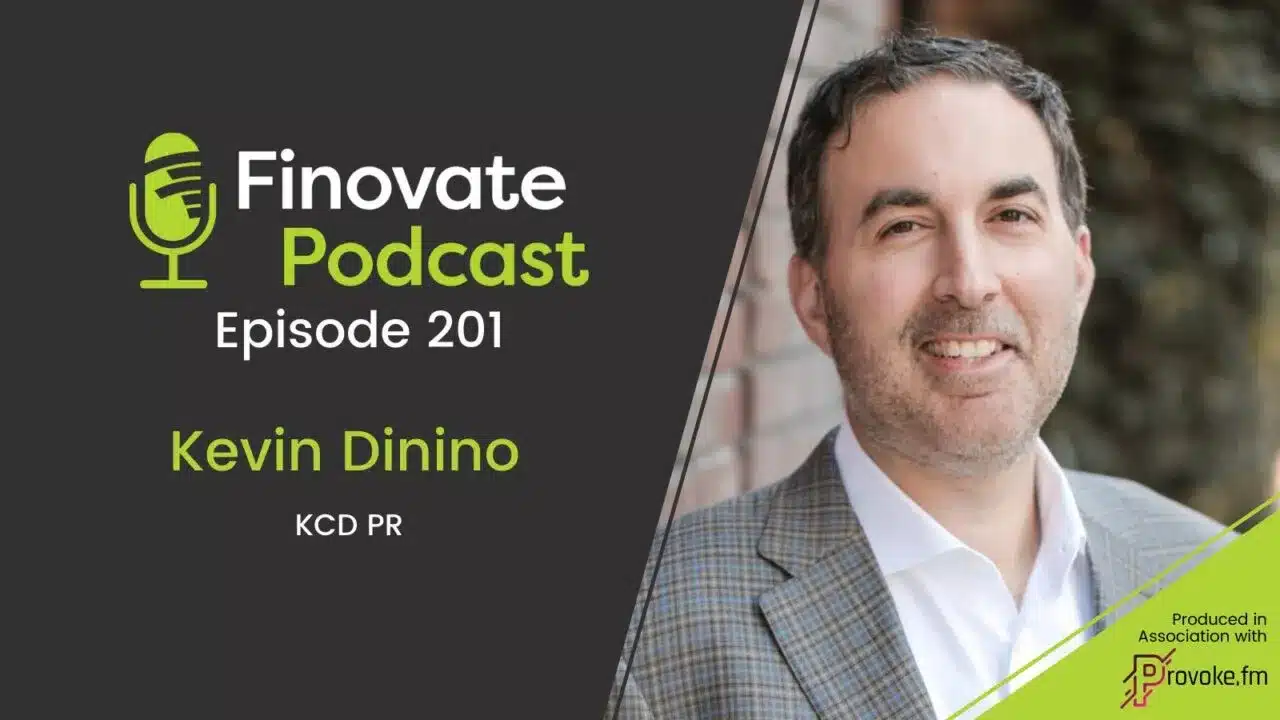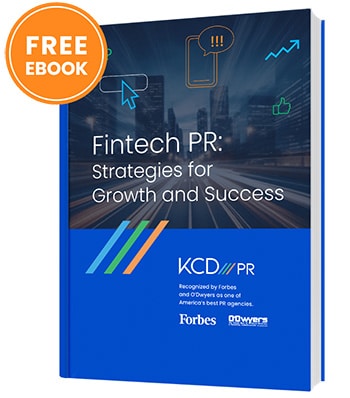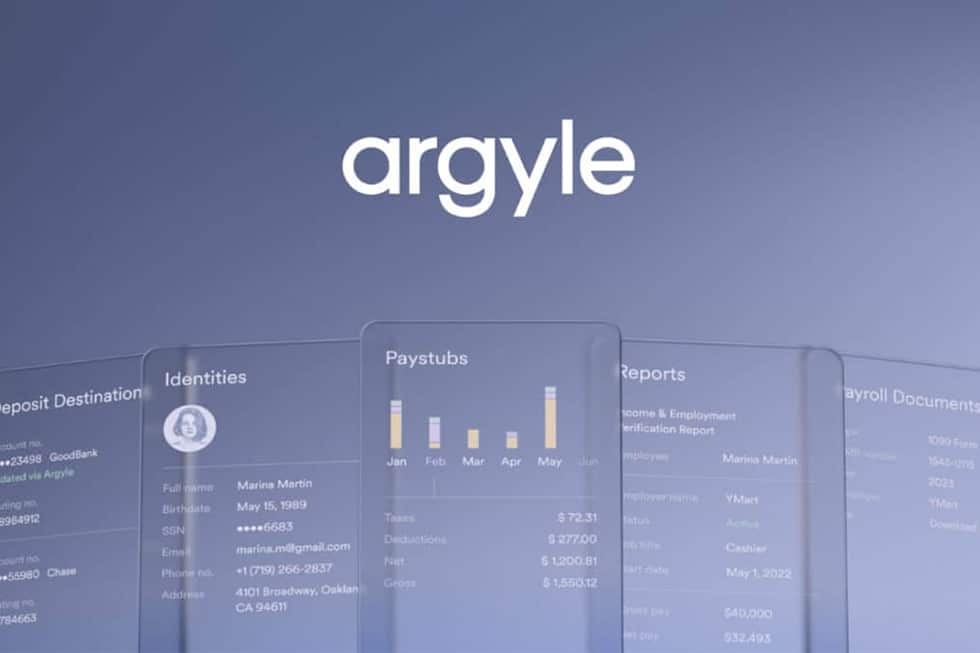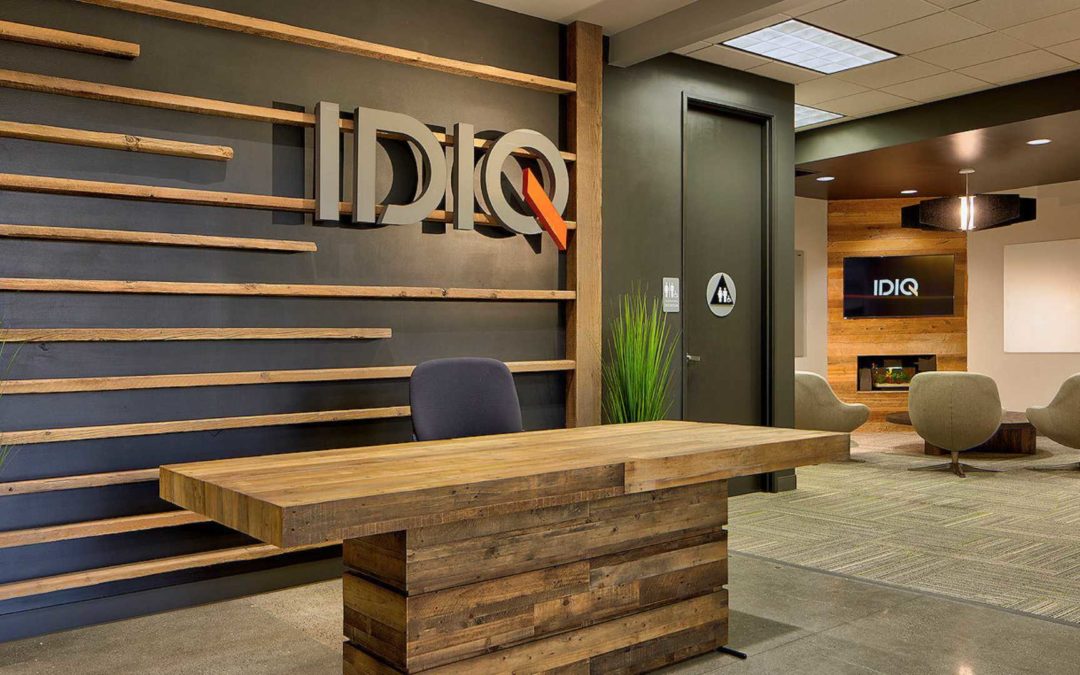
In this Finovate Podcast interview, Kevin Dinino talks with host Greg Palmer about the “wonders and blunders” from 2023. Dinino also shares his ideas about what to expect from the world of fintech and financial services in 2024.
The lessons learned are really being prepared and having a very detailed plan B, whether it’s related to a breach or an incident or a crisis scenario. But even like a rebrand for example. I don’t want to poke fun at X and Twitter too much, but all of these situations are easily avoidable. And in many cases with the right amount of proactive planning, where you let the experts sort of take control that’s going to really make or break company’s reputation, and in some cases, their bottom line.
Finovate showcases cutting-edge banking and financial technology through a global conference series featuring short-form demos and thought leadership. Now the conversation continues on the Finovate Podcast.
GREG PALMER: Hi, everybody and welcome to the Finovate podcast. Joining me today we have Kevin Dinino Founder and President of KCD PR. Kevin, thanks so much for joining me today.
KEVIN DININO: Greg, it’s been a pleasure. Happy New Year.
GREG PALMER: Yeah. Likewise, Happy New Year. So for people who haven’t heard of KCD PR, and you probably should have they’ve sent quite a few companies to Finovate events in the past. But would you take a moment and just introduce yourself and explain a little bit about your perspective on the FinTech industry?
KEVIN DININO: I would appreciate that Greg, would be happy to. So we are actually celebrating year 15 of KCD PR, we started the firm in 2009, and our agency works closely with fintechs, banks, and financial services companies to really help transfer their vision into a voice. And so that typically means just managing their communications and digital marketing programs for them. To your point, I’ve worked really closely with Finovate and within the ecosystem now for a long time, and really excited to work with a lot of innovative leaders in the space as well.
GREG PALMER: Yeah, excellent. So one of the other pieces which I maybe should have mentioned in the introduction, but you also put out a newsletter called Wonders & Blunders, which I thoroughly enjoy. And that’s really what I’d like to talk to you about today. Is going through some of the biggest wonders and or blunders from last year looking at how people can avoid making some of the mistakes that have been common previously. Avoid making those mistakes again this year. Let’s start by kind of looking back at 2023 And can you give us just some highlights biggest wonders and wonders of the year that just wrapped up?
KEVIN DININO: Well appreciate the shoutout it is a fun newsletter and it actually started Greg with you know truly just that some you know, interesting and almost funny blunder news and a lot of wonders and we even add emojis with hair on fire. To sum it up, but last year was definitely quite an eventful year in terms of FinTech and banking so look at the Super Bowl last year to kick off 2023 Right we had we had TV commercials with the amazing Larry David in it for FTX. And in the ad, the irony of the ad campaign was called Don’t miss out and his character was like, maybe you don’t want to do that. And so you know, it’s hard not to sort of lump in what happened with crypto in general last year, various scandals FTX, and everything that happened with SBF probably being one of one of the bigger ones for sure. And you know, there was plenty on the blunder side with that. And then really you know, the banking you know, the initial collapse I guess, of SVB and various other banks and really the bank run on it but I think the blunder takeaway from that situation was really kind of looking under the hood with a lot of companies and realizing that wow, you know, corporate governance is really important. And you had a bank without a Chief Risk Officer for quite a long period of time, for example, and so I know we touched on that, as well.
And then our friend Elon Musk, as well. So the repositioning, I think of Twitter, to X purely from a branding standpoint let’s take politics out of the mix or your personal opinions on what’s going on at Twitter when they rebranded that company to X. For almost a week. There were press materials and just marketing materials that have still not been rebranded to X. Even the platform itself had a button that said, click here to tweet. So the whole term of tweeting and Twitter still existed. And so you know, as marketers that got our antenna up and we had a good about a lot of fun with that. And you know, saying FU to customers in a public forum. Probably not good for business either.
GREG PALMER: I think we can count that last one as both a wonder and a blunder because you kind of watch it at the counter anybody do something like this? How could you think that was a good idea? No, but this has been really good and just kind of recap, and some of these pieces are you think okay, well, certainly there’s an element of luck here, but some of it to just really open yourself up to some of this ironic attention. I think particularly around the FTX commercial that you’ve highlighted with Larry David, I think that really in retrospect, you look at that and think that’s pretty cringe-worthy right there. I want to kind of shift gears as much fun as it is to look at some of these blunders from last year. I think it’s also important that we look at them from the standpoint of learning opportunities. I think there are really valuable things that you can and should learn from some of these mistakes. What are you seeing what are some lessons that you are drawing from some of these mistakes and more importantly, you know what are you advising your clients as far as how to implement some of the changes that they shouldn’t be implementing as a result of seeing some of these really high profile blunders?
KEVIN DININO: Absolutely. And I think, you know, when you look at a lot of the blunders that happen and you think, okay, how can we either avoid this or kind of get ahead of things where it even gets to that standpoint, planning in general, I think is an under it’s often sort of under related and underappreciated but planning from the standpoint and to be from a communication standpoint and a security standpoint. The lessons learned are really being prepared and having a very detailed plan B, whether it’s related to a breach or an incident or a crisis scenario. But even like a rebrand for example. I don’t want to poke fun at X and Twitter too much, but all of these situations are easily avoidable. And in many cases with the right amount of proactive planning, where you let the experts sort of take control that’s going to really make or break company’s reputation, and in some cases, their bottom line. I mean, I know of well, it might not necessarily be smack dab in FinTech. Look at what happened with MGM and Caesars where you’re talking. They were losing millions and millions of dollars. Every day to a breach. And in many cases, folks, we’re finding out via SEC reports, kind of the full scope of that. And so the the theme of 2024 and it probably should have been the theme of last year as well, is and what we’re doing, is really working closely with a lot of clients on ensuring Do you have a crisis comms plan in place, if there is an incident and we’re saying, you know, we’re still kind of saying if but the reality is when there is some form of incident via cyber breach, data loss, etc. What is the plan, ranging from the CEO down to your marketing and comms team so that the message can really be consistent and you can get ahead of these things to ensure you know, in many cases, it could be reputational loss, but also there’s a material side of this too, Greg, I mean, it’s dollars and cents. You have publicly traded companies, shareholders, you might have VC firms. So it’s, I think that’s going to be the trend is sort of a back-to-basics mentality of planning and, the topic of security being prepared for a cybersecurity situation.
GREG PALMER: Yeah, absolutely. And I think one of the things that you kind of touched on there, which I want to highlight, I think, you know, obviously having a plan is really important, but also looking at some of the blunders that you mentioned. Where you got in many cases, teams of people who are really intelligent, really hard-working, who have a CEO or someone in the leadership position who maybe go slightly off the rails or you have a failure as you pointed out to not have a Chief Risk Officer things like this. And you realize how significant those pieces can be. And how many people are affected. You know, if you were to look at what happened to FTX, for example, Now, clearly, you know, there’s a lot of bad actors in very high profile positions there. But there’s also huge numbers of people who genuinely believed in the mission, who were excited by it, and who were clearly intelligent and quality programmers quality coders and things like that. And it really just strikes me that these rules are in place for a reason, right? Because so many of those people were let down by these types of high-profile errors and all of a sudden you find yourself not only looking for a new job, a new place of employment, but you also have the stain of oh, well you worked at FTX even if you did nothing wrong on a personal level. You see how significant some of these pieces are that reputational side of it is really easy to lose. And one of the things that I frequently talk about with companies who come to Finovate is you know, in many cases, is your CEO actually the best person to be up on stage doing this type of demo. And for many of them, yes, of course. They’ve got a great CEO. He knows what the messages are. But there are always a couple who hear that and think you know, actually, maybe it’s not, that’s not the person who needs to be up there. They’re really good at running a company really good inspiring people, but in a live mic situation. Do we trust them to deliver the message the way the rest of the team is counting on them to deliver the messages? I think certainly, a really good food for thought. So you know with that said? Let’s look forward to 2024. You talked a little about, you know, some of the themes that you think are going to be coming in 2024 Certainly, there’s no shortage of mistakes that need to be rectified. But let’s let’s look at it from the other side. Let’s look at it from this wonder side. Are there any potential kind of big-picture gains or really inspiring things that you could see potentially on the horizon in 2024?
KEVIN DININO: Yeah, I think there’s a couple that stand out for sure. I mean, with all of the focus lately, on security, you know, you have blockchain technology, and the adoption of it in FinTech and banking still relatively low, as well. I think that’s going to be a category where I think we start to see a lot more use cases in terms of blockchain kind of really being kind of plugging in. I think the fintechs will likely be the first to adopt as we tend to know financial institutions and banks are usually a little bit farther behind on that curve. So just the kind of the use case progress, the security improvements that can be made. I think that will be a big piece of what 2024 looks like, and seeing new initiatives on that front, as well as the I think probably one of the bigger elephants in the room as it pertains to our space, as well. And probably lumping in the broader VC community is there’s so much dry powder right now in VC.I believe the FT reported like a $4 trillion amount of dry powder in various private private investment funds heading into this year. And so I think this you have interest rates coming down, likely a little bit to start the year here and so I think there’s going to be a little bit of a thawing if you will, and likely some nice deals, be it fundraising on the VC side, and fintech and banking and then probably a good amount of M&A too Greg as well both on that front due to that lower interest rate environment and hopefully we see some big IPOs so all three of those, I think kind of prompt a little bit more attention, if you will, to the investing side of the space and I’ll leave you, maybe with one more. We talked a little bit about kind of the crypto blunders if you will, but there have been some wonders I mean, the recent announcement to have a Bitcoin spot Bitcoin ETF and over a dozen players, I think you’re gonna start to see more ETFs with different forms of crypto, whether it’s an Ethereum or XRP that lead the way and so the whole retail and institutional market now are starting to become a little bit more centralized if you will, with crypto becoming even more mainstream and adopted across the board.
GREG PALMER: Yeah, yeah. And I think that’s gonna be interesting to see how that plays out. Certainly how consumer sentiment is regarding some of those cryptocurrency pieces and it varies wildly depending on what type of consumers you talk to. But coming back to the kind of VC and private equity side of it, I think that’s something where you certainly hope it’s the case, right? I think there’s been a lot of people who have been kind of watching that and thinking, well, the FinTech ecosystem is down, fundings are down, which means that the amount of innovation is down. I don’t personally subscribe to that view. I think that there are still places for good companies good ideas to get funding. But there are also limitations. And if you look at you know, some of the people that I’ve talked to who say and if you are a really ambitious founder, if your goal is to go and create something that really will have a massive impact on the industry, you really do need a significant amount of venture capital in order to make that happen. You can’t bootstrap your way to the top of the pile. It does take some significant funding to be able to really do that. So I think that’s a space that people will watch very closely. I certainly hope that you’re right that there is a little bit of movement there because there’s so much on the sidelines right now. It just doesn’t make sense. And hopefully, we see that money going to the right kinds of people. Looking at 2024, you know, looking at some of the more positive side I want to talk about what type of blunders are no longer forgivable, you know, I think everybody can make mistakes. No, everybody’s doing their best. But there are certain things which I think we now have to say okay, in 2024. The standard is such that you cannot do this any longer. What would you say is in that category? What types of blunders are no longer forgivable?
KEVIN DININO: I mean, I touched on a little bit on the corporate governance side. So whether it’s, you know, not having a specific layer to your management team that’s required, as well. Whether it’s a Chief Risk Officer, etc. But I think probably one of the more prominent, you know, this is not going to be something that’s forgiven much longer is, again on that, on that topic of security, whether it’s breaches, you’re seeing a lot of companies that are after the fact disclosing a breach happened or maybe they’ve paid a ransom to firms and when you’re finding out sort of after the fact just in general kind of after the fact communications are just no longer forgivable, I think the market, employees, customers, etc. really expect in many cases a real-time type discussion and communication on events that are happening so the “no comment” or, you know, finding out 2-3-4 weeks after the fact or just, you’re gonna be punished both in the reputational side and or the market if we’re dealing with publicly traded plays, as well. And I would say kind of circling back to your prior question too Greg in terms of kind of what’s going on in the VC space. I do think that you know, that kind of go through some of what we could think of for this year. I think a lot of the fintechs that, you know, we’re able to navigate through the trials and tribulations of the last couple of years and have kind of built up strong use cases and still grown. I mean, I think we’re working with several clients right now on fundraising announcements, the money’s there, and the rounds might be smaller, but I think the companies that can show that they can really navigate and grow and, you know, more of a trying environment. Hopefully, that will start to crack the ice a little bit too.
GREG PALMER: Yeah, yeah, I agree. And I think looking at your unforgivable I think you’re spot on. I’ll just add one more thing sending people who’ve been involved in the data breach a check for like $1 where they cash the check they give up their right to then go and try and get recompense in someplace else. That’s, that’s pretty messed up. I think that’s unforgivable. So, just kind of tacking one more on to what you’re saying there. I see. We are about out of time. And I want to end on a relatively simple Well, let’s put you on the spot. Can you give us a bold prediction for 2024? And you know, don’t worry, there’s nothing at stake here except pride and of course, the blistering social media campaign we’ll put out next December if you’re wrong.
KEVIN DININO: You can crucify me if this happens, but I think big picture, I know, everyone’s talking about AI, looking at AI under my lens from a kind of a branding and positioning standpoint, and I think there’s some potential pitfalls ahead in terms of how AI has been, or plans to be implemented with all of the various GPTs, et cetera. We’re currently working through a crisis right now with multiple clients that have been impacted by how AI has essentially generated content and pulled quotes from various spokespeople that weren’t theirs, but to the outside eye and from a reputation standpoint, there’s just a lot of what I would call sort of fake news, if you will, out there. And so I think it’s going to, unfortunately, probably a couple bad things are gonna happen as it pertains to how AI is utilized within that environment for some new guardrails and regulation to occur. You know, I think there’s a lot of good to AI, but I think we still very much need some guardrails. And so I’ve talked to my team, and 2024 I think is going to be the year that all of these content aggregators, AI, crap gets pushed out there. And towards the end of the year, it’s gonna get cleaned up and we entered maybe 2025 with sort of a more calm environment as it pertains to that so you know, let’s see what happens I suppose on that front.
GREG PALMER: Yeah, no, very interesting, and it certainly sounds reasonable. Now we’ll see how it feels in another 11 months or so. But I would encourage anybody listening to check out the Wonders & Blunders newsletter put out by KCD PR. Kevin, thank you so much for taking the time to chat through some of the best of with me. Always a pleasure connecting and appreciate your time.
KEVIN DININO: I appreciate it, Greg. Look forward to seeing you soon.






